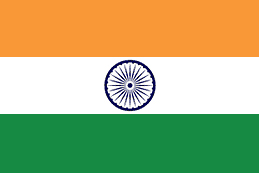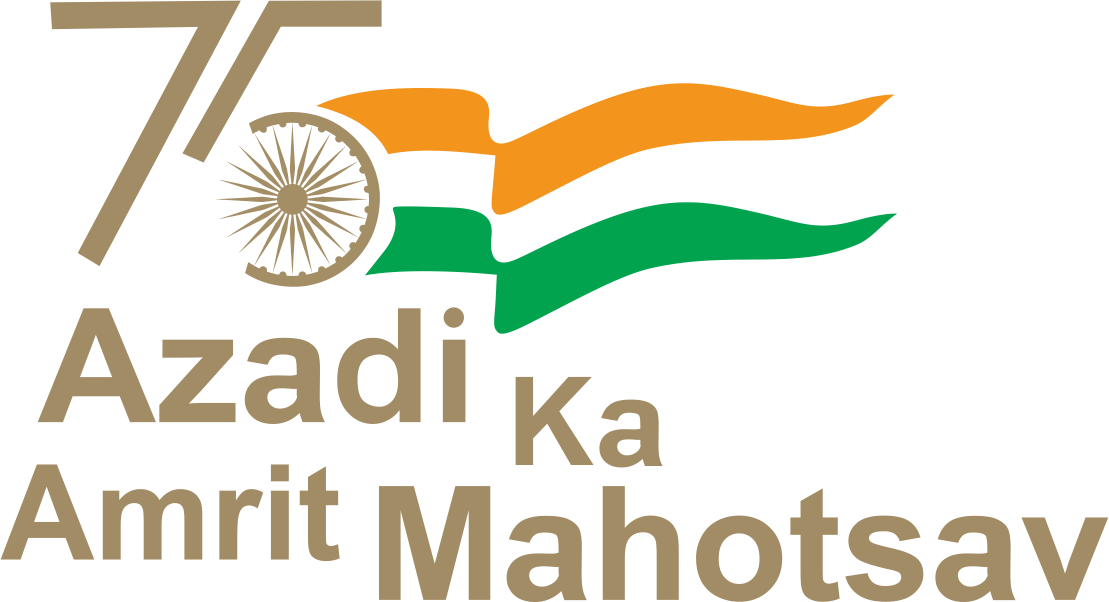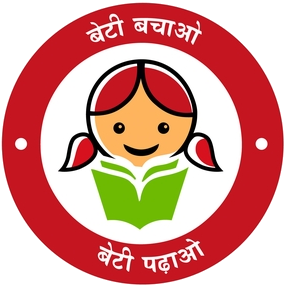Indian Cardamom Research Institute (ICRI)
Indian Cardamom Research Institute (ICRI) was established in 1978 as the research wing of Spices Board, with its headquarters at Myladumpara, Idukki District (Kerala) to undertake basic and applied research on small Cardamom. To address location specific requirements, two Regional Research Stations were also set up at Sakleshpur in Hassan District of Karnataka and Thadiankudisai in Dindigul District of Tamil Nadu during 1980.
To undertake research on Large Cardamom which is one of the most important cash crops of Sikkim state and Darjeeling District of West Bengal, the third Regional Research Station was established during 1981 at Gangtok, Sikkim.
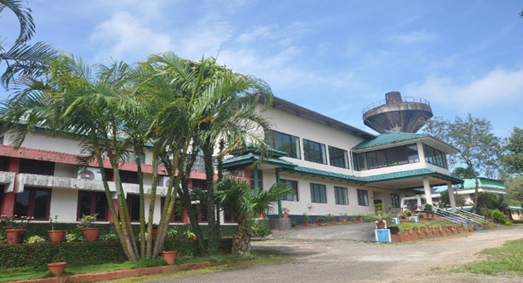
Indian Cardamom Research Institute, Myladumpara, Idukki District, Kerala
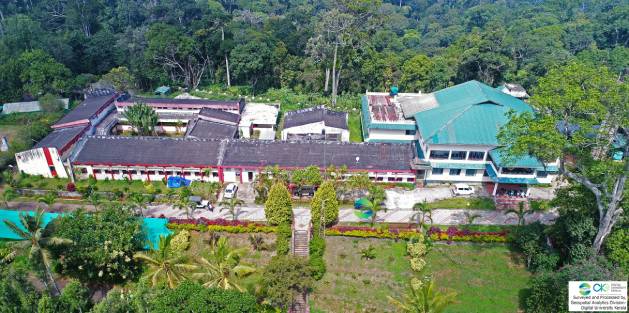
The Oblique view of ICRI Main Building, Myladumpara by Drone survey
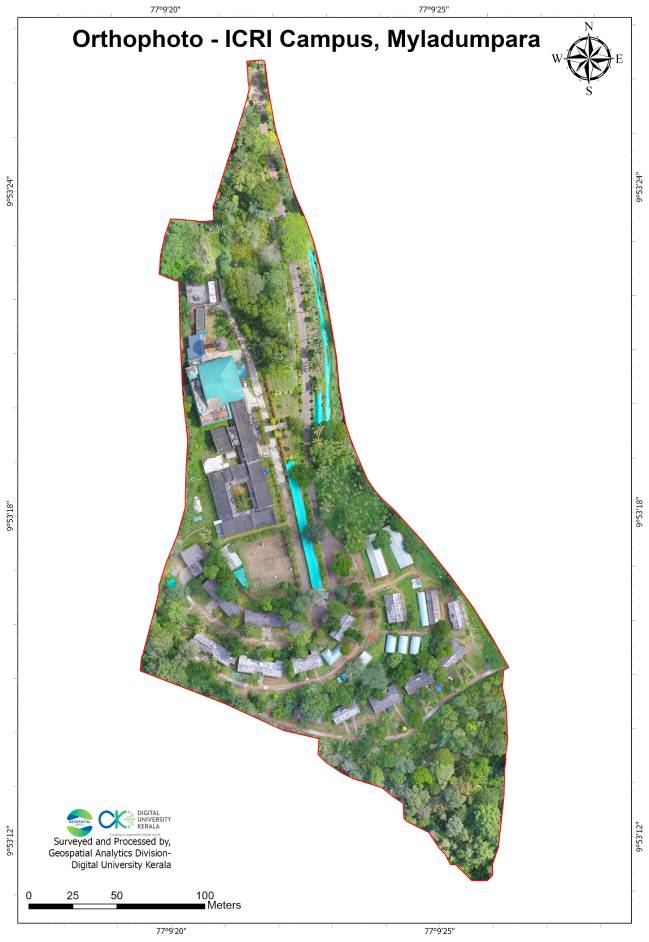
Orthophoto (true to scale) of the ICRI campus, Myladumpara by Drone survey
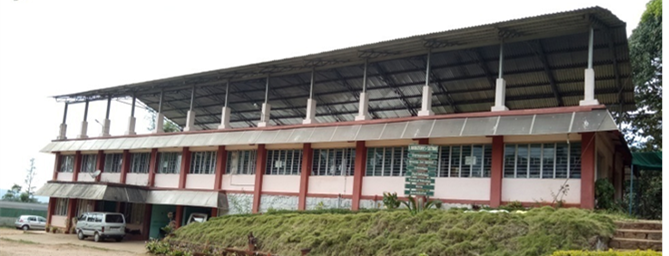
Indian Cardamom Research Institute, Regional Station Sakleshpur
The main objective of ICRI is to promote quality and sustainable production of small & large cardamom. Research is mainly focused on small cardamom growing tracts of Kerala, Karnataka and Tamil Nadu as well as large cardamom growing regions of North East States.
Major divisions of research are Crop Improvement & Biotechnology, Agronomy & Soil Science, Crop Protection and Post-harvest & Transfer of Technology. Farmer participatory research and technology evaluation are the major activities undertaken by the research divisions. These cover Germplasm Conservation & hybridization programme, Weather Monitoring & Crop Impact studies, Monitoring of Pesticide Residues, Soil Health Analysis, Post-Harvest Technologies and Farm Mechanization, Pest and Disease surveillance, Screening of germplasm for Pests and diseases, evaluation of pesticides and bio agents. Sustainable production technologies are also being undertaken for varietal development, Integrated Pest and Disease management as well as Integrated Nutrient Management. In addition to these, several externally funded projects are ongoing in most of the divisions.
Released 8 high yielding varieties viz., ICRI 1, ICRI 2, ICRI 3, ICRI 5, ICRI 6, ICRI 7 &ICRI 8 for small cardamom during the period and ICRI Sikkim 1 & ICRI Sikkim 2 for large cardamom.
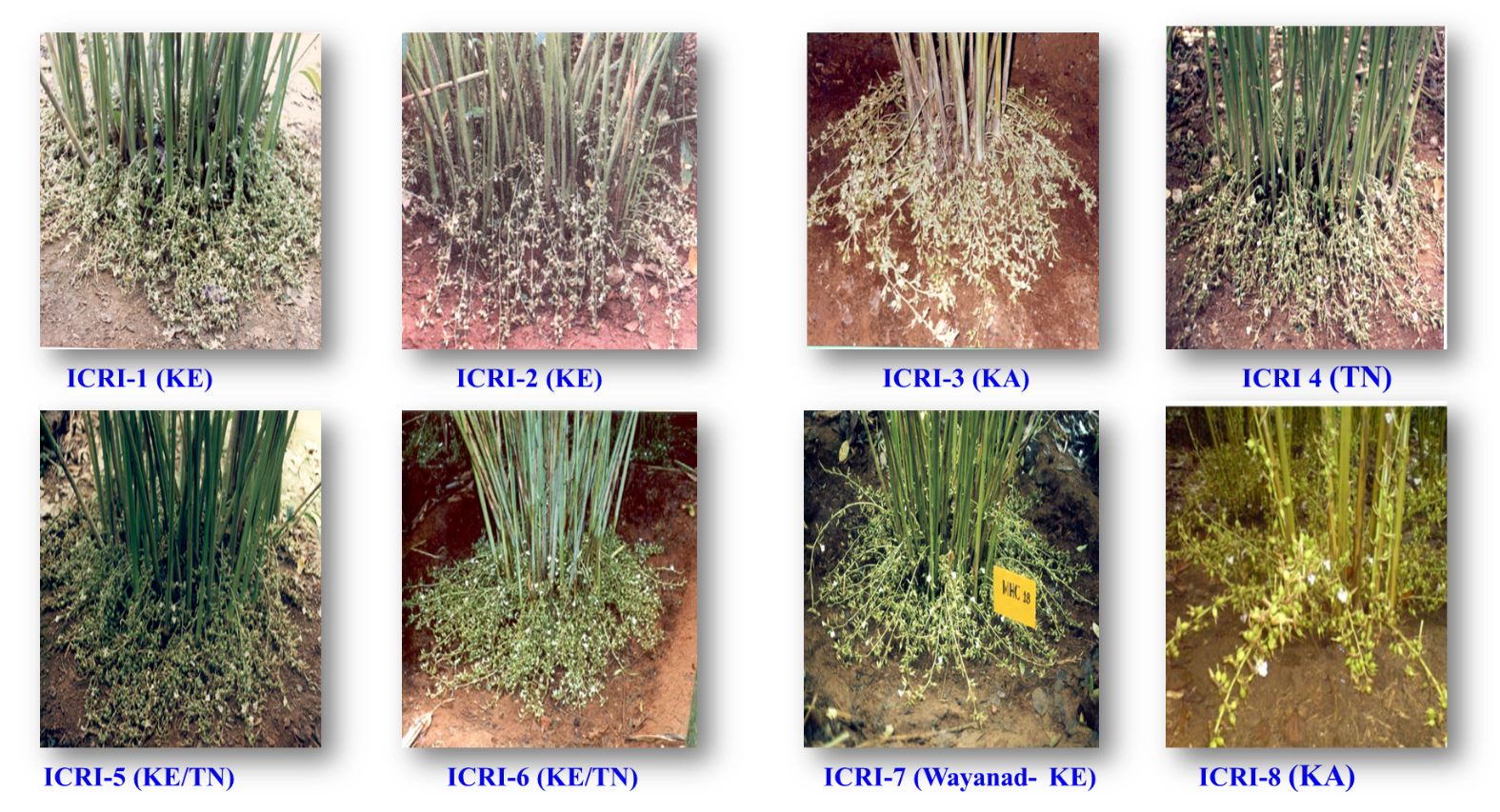
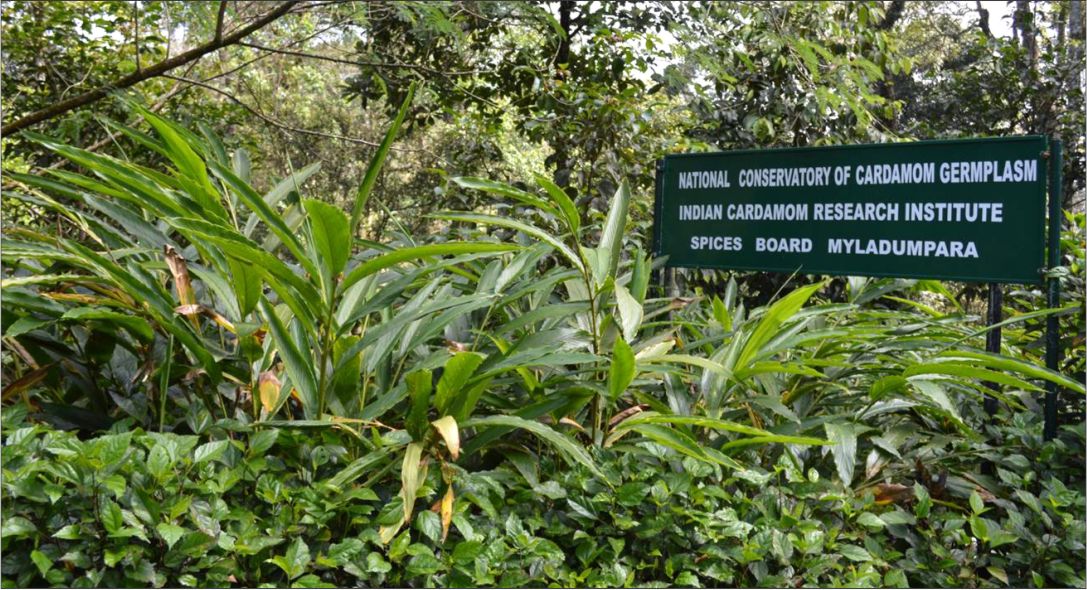
National conservatory of cardamom germplasm, Myladumpara
ICRI has a national conservatory of cardamom germplasm at Myladumpara which maintains around 540 cardamom accessions and twelve allied genera from varied agro-climatic zones. Similarly, ICRI RRS at Sakleshpur and RRS at Gangtok maintains germplasm repositories of small cardamom & large cardamom respectively.
MANDATE
- To undertake basic and applied research on small and large cardamom.
- To conduct field adaptation trials, evaluation and validate technologies developed by ICAR institutes, State Agricultural Universities (SAUs) and other agencies.
- To carry out trials on Post - Harvest Technology including processing, storage and handling of spices for the production of clean spices.
- To develop appropriate technologies for organic spice production
- To provide advisory services to farmers based on soil and plant test report, supply of bio-agents, organic inputs and quality planting materials.
- To support the Development and Marketing departments of the Board in tackling specific issues on production and quality of export-oriented spices.
- To transfer technologies to farmers and targeted groups through various extension activities such as Scientist-Farmer interface, group meetings, seminars, workshops, demonstration plots, production of audio-visual aids, webinars, mobile spice clinics, field visits and publication of extension materials.
- To conduct training programmes for Board's Development department staff and impart scientific skill to farmers / agriculturists and unemployed youths on Good Agricultural Practices (GAP) for quality spice production.
Organisational setup
Main Station – Myladumpara, Idukki District, Kerala.
Regional Research Stations (3 Nos.)
1 . Sakleshpur (Hassan District, Karnataka)
2 . Thadiyankudisai (Dindigal District, Tamil Nadu)
3 . Tadong (East District, Sikkim)
Experimental Farms (5 Nos.)
1 . Myladumpara (Kerala) – 64.47 Ha
2 . Saklespur (Karnataka) – 17.66 Ha
3 . Thadiyankudisai, Tamil Nadu – 13.38 Ha
4 . Kabi (Sikkim) – 5.58 Ha
5 . Pangthang (Sikkim) – 4.01 Ha
Major Divisions under Research
1 . Crop improvement & biotechnology
2 . Agronomy and soil science
3 . Plant pathology
4 . Entomology
5 . Transfer of Technology
Supporting sections
a.i.1) Library and information
a.i.2) Administration
a.i.3) Farm
ICRI RRS, Saklespur, Karnataka
The Regional Research Station of ICRI is located in Donigal, about 6 km away from Sakleshpur in Karnataka. The campus spreads in 50 acres of land adjacent to the Bengaluru – Mangaluru Highway. There are four Divisions in the station viz., Crop Improvement, Agronomy & Soil Science and Crop protection. The station conserves 264 accessions of cardamom germplasm and allied genera and several collections of Garcinia, Cinnamon, Allspice etc.
ICRI RRS, Thadiyankudisai
The Regional Research Station of ICRI, Thadiyankudisai is located in Dindigal District of Tamil Nadu with an area of 13.38 Ha.
ICRI RRS, Sikkim
The Regional Research Station for large cardamom was established at Pangthang in East Sikkim in 1981 to tackle location specific research and development programme for North East region including Sikkim state and Darjeeling district of West Bengal. The RRS at its farm conserves 254 large cardamom accessions including high yielding lines.



